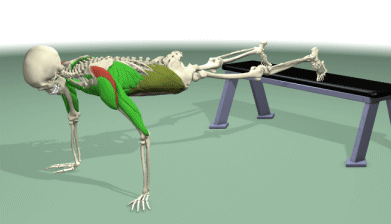




THE FITNESS
DIGEST.
Sunflower Seeds
Here are six health benefits of sunflower seeds that may make you want to include them in your diet on a regular basis.
1 Cardiovascular Benefits
Sunflowers are an exceptional source of vitamin E, which plays a very important role in the prevention of cardiovascular disease. Vitamin E is an antioxidant that helps keep free radicals from oxidizing cholesterol. Only when oxidized is cholesterol able to stick to blood vessel walls and cause atherosclerosis, which can lead to blocked arteries, heart attack, or stroke. You can get over ninety percent of the daily value for vitamin E in only a quarter of a cup of sunflower seeds.
2 Anti-Inflammatory
Sunflower seeds are an excellent source of vitamin E, the body's primary fat-soluble antioxidant. Vitamin E travels throughout the body neutralizing free radicals that would otherwise damage fat-containing structures and molecules, such as cell membranes, brain cells, and cholesterol. By protecting these cellular and molecular components, vitamin E has significant anti-inflammatory effects that result in the reduction of symptoms in asthma, osteoarthritis, and rheumatoid arthritis, conditions where free radicals and inflammation play a big role.
3 Cancer Prevention
Sunflower seeds are a good source of selenium. Studies suggest a strong correlation between low selenium intake and cancer incidence. Selenium has been shown to induce DNA repair and synthesis in damaged cells, to inhibit the proliferation of cancer cells, and to induce their apoptosis, the self-destruct mechanism the body uses to get rid of worn out or abnormal cells. In addition, selenium is incorporated at the active site of many proteins, including glutathione peroxidase, which is particularly important for protection against cancer. One of the body's strongest antioxidant enzymes, glutathione peroxidase is used by the liver to detoxify a great many harmful molecules. When levels of glutathione peroxidase are low, these toxic molecules wreak havoc on any cells they come in contact with, damaging their DNA and prompting the development of cancer cells. One quarter of a cup provides over thirty percent of the daily value for selenium. The vitamin E so abundant in sunflower seeds has also been shown to reduce the risk of colon cancer, bladder cancer, and prostate cancer.
4 Bone Health.
Sunflower seeds are particularly rich in magnesium. It's a well-known fact that calcium is necessary for strong bones, but magnesium is too. Most of the magnesium in the human body is in our bones. Some of it helps lend bones their physical structure, and the rest is located on the surface of the bone where it is stored for the body to use as it needs. Copper found in sunflower seeds is vital for the function of enzymes involved in cross-linking collagen and elastin, providing strength and flexibility in bones and joints. Vitamin E also imparts anti-inflammatory properties to sunflower seeds, effective in the reduction of arthritis symptoms.
5 Nerve Health
By preventing calcium from rushing into nerve cells and activating them, magnesium keeps our nerves relaxed and thereby our blood vessels and muscles too. Too little magnesium means too much calcium can gain entrance to the nerve cell, causing it to send too many messages, and leading to too much contraction.
Insufficient magnesium leads to higher blood pressure, muscle tension, migraine headaches, soreness and fatigue. Not surprising that studies have demonstrated magnesium helps diminish the frequency of migraine attacks, lowers blood pressure and helps prevent heart attacks. Sunflower seeds also contain tryptophan, an amino acid that helps produce serotonin, an important neurotransmitter. Serotonin relieves tension, calms the brain and promotes relaxation.
6 Skin Protection
Vitamin E has sometimes been described as the "lightning rod" of the cell, allowing reactive molecules to strike the cell, like lightning, without causing damage. This function of vitamin E is particularly apparent in the case of the skin, since vitamin E directly protects the skin from ultraviolet radiation. In many studies, vitamin E applied topically has been shown to prevent UV damage. A diet containing vitamin E-rich foods promotes this same protective effect.

Physical fitness Disclaimer and Waiver of liability:
Exercises are not without their risks and the exercise programs in this website may result in injuries.Any person who undertakes these exercises does so at their own risk.To reduce the risk of injuries ,you should consult your doctor before beginning these or any other exercise programs.As with any exercise program ,if at any point during your workout you believe conditions to be unsafe or begin to feel faint or dizzy,have physical discomfort or pain, you should stop immediately and consult a physician.
Daily exercise for Working women.
Jumping Jacks. . Effective workouts.
Group exercise and its benefits.
Calf raises-free style . Push ups.
Tummy exercises. Hoola Hooping .
Fitness Motivational tips. Barbell Squauts.
The myths of spot reduction. Leg press.
Standing calf raises. Concentration curls.
Bench (Tricep) dips.. One arm dumbbell rows.
Pec deck Flye. Fr0nt dumbbell raises. Glute ham raise.
Seated leg curl . Close grip bench press .
.

Please keep comments positive and constructive.
Help the WEBSITE by reporting inappropriate comments to thefitnessdigest@gmail.com . Inappropriate comments may be reported and/or removed.